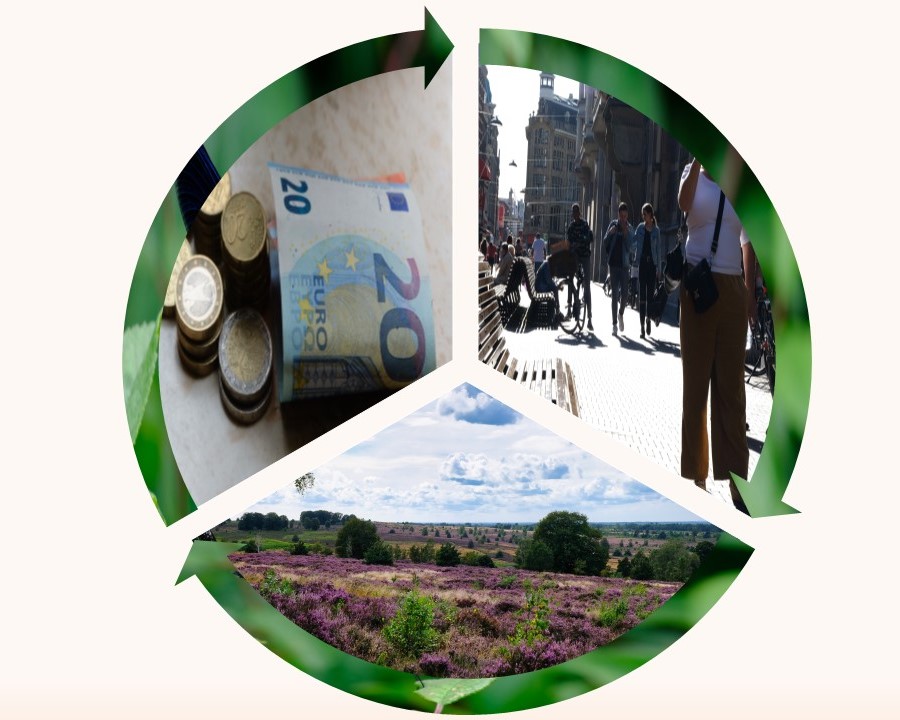Purpose-Led?

As someone who worked at the same (large!) company for over 25 years, before starting weColLaborate as a Freelancer, I know how the culture has changed over the years. You sometimes hear people talk about unchangeable traditions and principles, but that is of course only partly true... everything is influenced by changing social, and perhaps also geopolitical, developments. And every action, in the short or long term, has an equal and opposite reaction.
When I started at DSM in 1990, it was still a kind of government company and remnants from when it was “De Staats Mijnen” (usually translated to Dutch State Mines) were in the fibers of the various departments: frying chips and turning on the radio loudly (after office hours of course), if something broke 3 (!) technicians from tech-service immediately came to repair it, laughing and crying together, helping each other, gossiping about people outside my own department... it felt like a family.
Merely 2 years later, a process of reorganisations started that would repeat itself about every 5 years with increasing downsizing, investments followed by divestments, a major merger and finally the relatively long process of splitting off the Materials.... DSM has reinvented itself for the 2nd time in its rich history: from coal to chemistry and materials to life sciences with bioscience and products for food and health.
But with all these reorganisations (with the many rounds of layoffs) and the social development of personal development and individualisation, this created more distance between the company and employees with less mutual bonding and an increasing everyone-for-himself mentality.
Where in the 1950s and 1970s it was still about "the leap forward" and demand-driven diversification of products, in the 1980s it was about products with a high added value, from the 1990s it was increasingly about focus and internationalisation (globalisation ). (info www.chemelot.nl)
And the term triple P was also introduced: People, Planet, Profit. In its core, this term stood for sustainable development and harmony between the 3 elements; one cannot exist without the other. From 2002, Profit was converted to Prosperity (Welfare) to also include social profit.
But not infrequently Profit seemed to prevail and the care and attention for People was often directed outside the company's own employees and more focused on supporting developing countries and the enormous exodus to China. And the reorganisations, with layoffs of employees, still did not stop; shareholder power peaked, often benefiting senior management in particular.
The societal response (in Netherlands), especially in recent years, has been a enormous increase in Freelancers and Startups. To be able to organise your own time, take your own responsibility, but also follow your own compass; no longer dependent on the policy and strategy of a management and, above all, being in charge of your own well-being. Despite the societal call, especially from the business community and some political parties (!), to work more hours, young people are increasingly opting for a better balance between work and private life and are often willing to earn a little less (despite, in Netherlands, the lack of affordable housing and high student debt for some).
In addition, with the process of aging and dejuvenation, it is increasingly difficult for large companies to find good employees.
And so, the triple P has been given an additional core: Purpose. That people work on something that is meaningful, has value and significance for a better world. Young people in particular see a sense of purpose as an important motive for choosing the company where they want to work. And you increasingly see in PR campaigns that companies are “Purpose-led”, developing all kinds of social activities and provide support to their direct and indirect communities, and sustainability has become an integral part of all business operations.
You wonder what the next step will be: Paper versus practice? Less saying that People is more important than Profit, but also actually decreasing the value of shares into increasing the value of your employees? And maybe you don't want to grow double digit every year, but strive for continuity? And "buy" innovation less, but develop more yourself by sustainably binding good employees to your company, even when the profits are "temporarily" less?
Every action has a reaction, every development a counter-development, but people essentially remain the same, want to be valued for who they are and what they contribute and not be pushed aside at the first setback. Perhaps with all this individualisation and flexibility there is a deeper desire to regain something of the 1950s-1970s feeling of continuous development and building together.
Feel free to contact us or request a quotation




